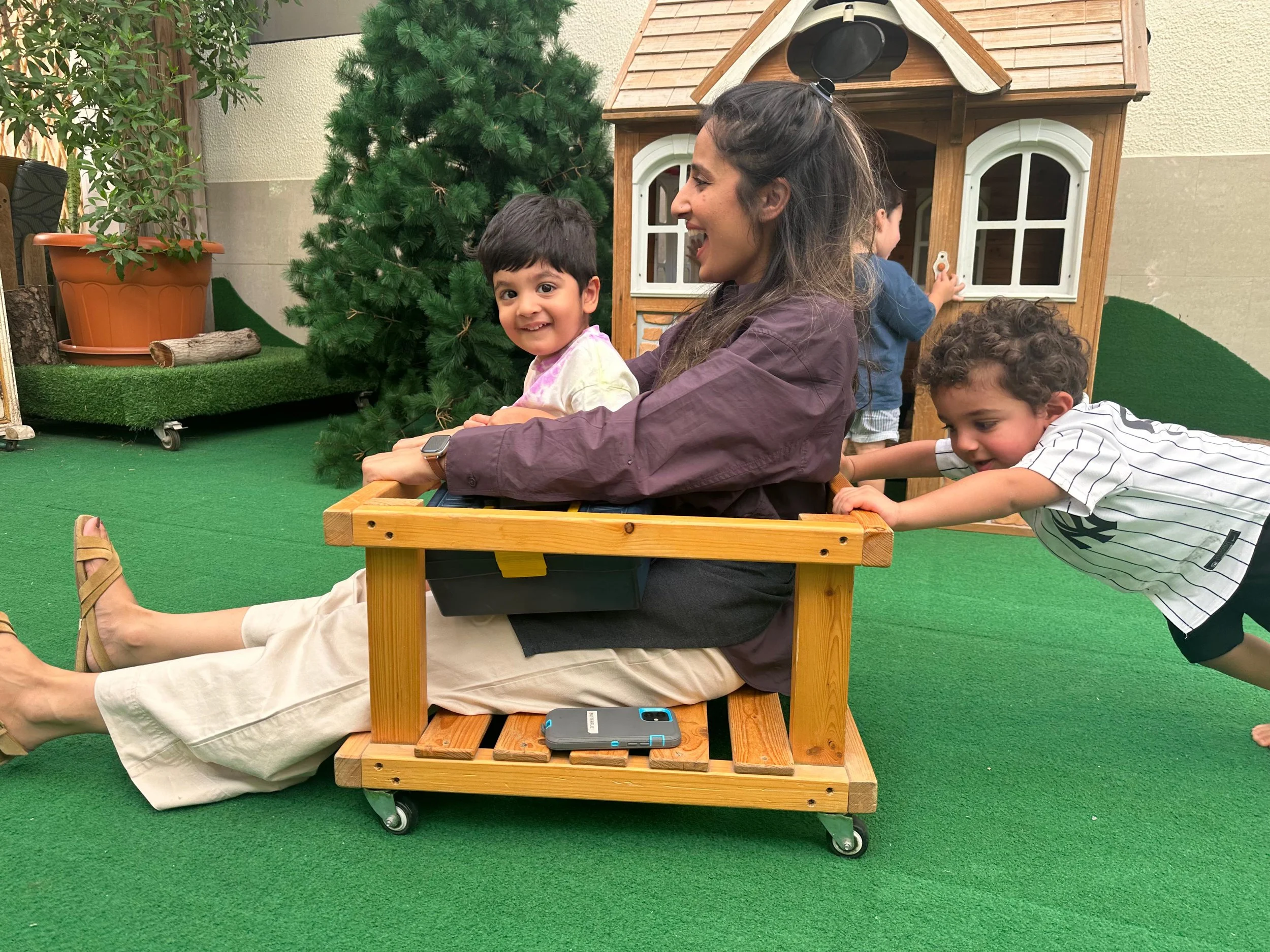The Power of Play: Why It’s Essential for Your Child’s Growth
Why is Playing Essential for Your Child’s Growth?
Have you ever wondered if your child is truly learning when they play? In a world that often prioritizes structured lessons and academic milestones, play can sometimes be underestimated. However, at Kid’s Island Nursery in Dubai, we know that play is not just a pastime, it is the foundation of learning, exploration, and growth.
Educational pioneers such as Friedrich Froebel, Maria Montessori, Rudolf Steiner (Waldorf), and The Curiosity Approach have all emphasised the transformative power of play in early childhood education. Their philosophies inspire our play-based approach, allowing children to develop essential skills naturally through hands-on exploration, imagination, and movement.
In this article, we will explore why play is not just fun but essential for cognitive, social, emotional, and physical development and how leading educational philosophies inform the rich learning experiences at our preschool and kindergarten in Dubai.
1. Play Builds the Brain: Cognitive & Academic Benefits
From Froebel’s "gifts" (open-ended learning materials) to Montessori’s self-directed play activities, play has always been central to meaningful learning. Research confirms that hands-on exploration strengthens brain connections, building essential problem-solving, creativity, and academic skills.
At Kid’s Island Nursery, we incorporate elements from Montessori and Froebel’s approach by providing open-ended materials such as wooden blocks, puzzles, and loose parts that allow children to experiment, create, and problem-solve at their own pace.
Montessori-inspired learning: Children engage in purposeful play that builds independence and critical thinking. For example, practical life activities (pouring, sorting, and sensory play) enhance concentration and coordination.
Froebel’s philosophy: Open-ended blocks and "gifts" encourage creativity, early numeracy, and spatial awareness, preparing children for future learning.
By fostering curiosity-driven play, we ensure that children develop not just academic knowledge but a deep love for discovery and exploration.
2. Social & Emotional Growth Through Play
The Curiosity Approach and Waldorf Education place strong emphasis on the emotional and social development of children, nurturing their sense of wonder and emotional well-being. At Kid’s Island Nursery in Dubai, we encourage children to express themselves, collaborate, and build meaningful connections through play.
Steiner Waldorf’s holistic approach values role-play, storytelling, and artistic expression to foster emotional intelligence. Children in our preschool in Dubai engage in imaginative play, helping them develop empathy and resilience.
The Curiosity Approach emphasizes an environment rich in natural, open-ended resources that spark inquiry and cooperation. Instead of plastic toys with fixed functions, we provide loose parts, natural materials, and real-life objects to encourage deep engagement.
By allowing children the freedom to engage in child-led play, we nurture confidence, creativity, and strong social bonds.
3. The Role of Play in Physical Development
Physical movement is an integral part of Froebel’s Kindergarten philosophy, Montessori education, and Waldorf learning, all of which emphasise the importance of active play in early childhood development. At Kid’s Island Nursery, we incorporate:
Montessori’s fine motor activities: Practical life tasks such as threading beads, pouring water, and using tongs strengthen hand-eye coordination, preparing children for writing.
Froebel’s outdoor play philosophy: Children engage in climbing, balancing, and jumping, developing motor skills, coordination, and confidence.
Waldorf’s rhythmic movement and nature-based play: Through dance, nature walks, and outdoor storytelling, children strengthen their connection to the natural world while improving physical dexterity.
By prioritising movement and outdoor exploration, we support both physical and cognitive growth in our young learners.
4. The Problem with Too Much Screen Time
Educational pioneers like Steiner, Froebel, and Montessori warned against passive learning, emphasising instead the power of hands-on experiences. In today’s digital world, where screens often dominate children’s time, we need to ensure that play remains the foundation of early learning.
At Kid’s Island Nursery in Dubai, we promote real-world engagement over screen time by:
Creating Montessori-inspired learning stations that encourage hands-on problem-solving.
Using The Curiosity Approach’s natural materials to encourage sensory exploration.
Providing Waldorf-inspired storytelling and imaginative play instead of passive screen entertainment.
By reducing screen time and increasing playtime, we empower children to think creatively, collaborate, and build real-world skills.
5. Play is Not Wasted Time: Shifting Mindsets
The world’s most successful education systems, including Scandinavian models inspired by Froebel and play-based learning approaches like Reggio Emilia, recognise that play is the most powerful form of education.
Finland’s play-based early years education produces some of the world’s highest academic achievers, proving that play is not a distraction but a driver of lifelong success.
Reggio Emilia’s child-led inquiry approach values play as a tool for communication, problem-solving, and collaboration.
At Kid’s Island Nursery, we embrace these philosophies, ensuring that our preschool and kindergarten in Dubai provide a rich, play-filled learning environment where children thrive academically, socially, and emotionally.
Conclusion: Encouraging More Play in Daily Life
At Kid’s Island Nursery in Dubai, we are passionate about giving children the best start in life through play. Inspired by Montessori, Froebel, Waldorf, The Curiosity Approach, and Reggio Emilia, we create an environment where children are free to explore, imagine, and grow.
Here’s how you can encourage play at home:
Create a Waldorf-inspired, play-friendly space with natural materials and open-ended resources.
Join in the play, Montessori-style! Engage in everyday activities like cooking, sorting, and outdoor exploration to support independence.
Embrace The Curiosity Approach by following your child’s lead. Let them tinker, experiment, and engage in self-directed discovery.
Play is not a break from learning, it is the most important learning of all. When we nurture play, we build the foundations for a lifetime of creativity, curiosity, and confidence. At Kid’s Island Nursery, we celebrate play every day, ensuring that our children develop the skills they need to thrive in school and beyond.
If you are keen to enrol your child in a nursery school that embraces this concept, get in touch to book a tour of our nursery school, or book a stay-and-play nursery school session to see how your child experiences the nursery school. Or get in touch with Kid’s Island Nursery School, Dubai for any other questions you might have.




